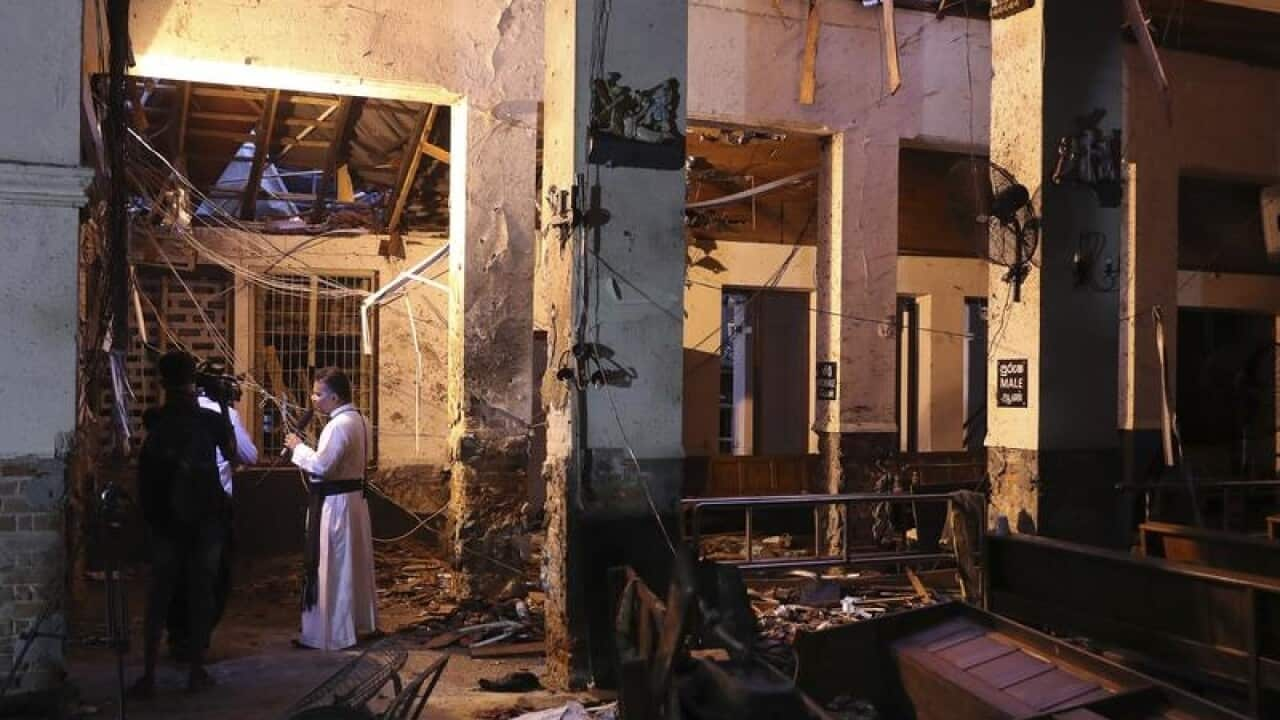Militants linked to Easter suicide bombings has opened fire and set off explosives during a raid by Sri Lankan security forces on a house in the country's east, leaving behind a grisly discovery Saturday: 15 bodies, including six children.
The gunbattle that began Friday night and the carnage that followed came amid widespread fear of more attacks as officials hunt for militants with explosives believed to still be at large after the coordinated bombings of churches and luxury hotels that killed more than 250 people nearly a week ago.
Raids and police curfews have shut down areas of eastern Sri Lanka, and Catholic leaders have cancelled Sunday Masses indefinitely. Officials also urged Muslims to stay home for prayers in an extraordinary call by the clergy to curtail worship.
The gunfight came after police tipped off soldiers about a suspected safe house near the town of Sammanthurai, where authorities said the militants detonated three explosions and opened fire.
Police spokesman Ruwan Gunasekara said some of the dead likely were militants who blew themselves up in suicide bombings. Earlier, the military said at least one civilian had been killed in the attack.
Meanwhile, the military said security forces had recovered explosives, detonators, "suicide kits," military uniforms and Islamic State group flags in the ongoing raids.
Gunasekara said officers acting on information from intelligence officials also found 150 sticks of blasting gelatin and 100,000 small metal balls, as well as a van and clothing suspected of being used by those involved in the Easter attacks. Suicide bomb vests often are packed with such balls to increase the shrapnel in the explosion, making them even deadlier.
Fear of more attacks has led to increased security at churches, shrines, temples and mosques across the multiethnic island nation of 21 million off the southern coast of India.
Cardinal Malcolm Ranjith, the archbishop of Colombo, told reporters Friday that church officials had seen a leaked security document describing Roman Catholic churches and other denominations as a major target. He asked the faithful across Sri Lanka to stay home for their own safety.
"We don't want repetitions," Ranjith said.
It was an extraordinary request for a Catholic clergyman to make, as churches often remain a refuge. Giovanni Maria Vian, a church historian and emeritus editor of the Vatican newspaper, said he believed it was the first time the church had cancelled Masses across a country for security reasons.









